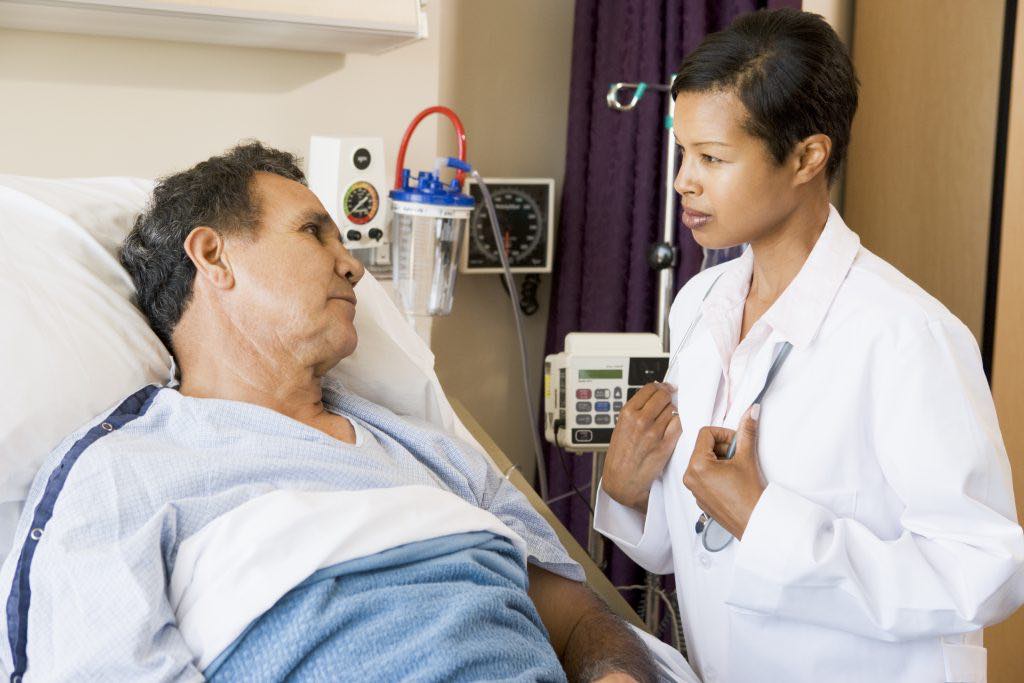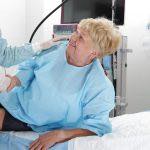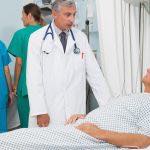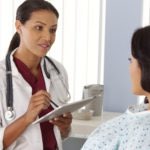A colonoscopy is a test used to examine the colon for potential health issues including colon polyps and colorectal cancer. A screening colonoscopy is a preventative exam used to find and remove precancerous polyps before they turn into cancer. These are typically recommended for people who are 50 and older, depending on your family medical history. During this procedure, your physician will also be able to find and treat any asymptomatic early-stage cancers. A diagnostic colonoscopy is done in response to symptoms such as rectal bleeding, abdominal pain or changes in bowel habits. No matter the reason for your procedure, your colonoscopy recovery experience will usually be the same.
It’s natural to feel a little nervous before your first colonoscopy. Below, you’ll learn what to expect from the procedure and what you can do to make your recovery as quick and comfortable as possible.
What to expect: your colonoscopy preparations
Before you schedule your colonoscopy, you should inform your physician of any medications that you’re taking. This includes prescribed and over-the-counter drugs, supplements, and vitamins. Your doctor might recommend that you stop taking certain medicines the day before your procedure.
The biggest part of preparing for your colonoscopy is cleaning out your bowel. It’s important to clear the stool from your colon so that your doctor can see your intestinal lining clearly. Your doctor will prescribe a special laxative for you to take the day before your procedure. You might also need to stick to a clear liquid diet for one to three days leading up to your colonoscopy. Some bowel preparations include a second portion to be taken the morning of the procedure. This may include one or more types of laxatives that can come in pill or liquid form. The laxatives used for colonoscopy preparation are specifically designed to clear out your colon without dehydrating you.
You will know when your bowel prep is complete when your stool is clear and liquid. You should stay near a bathroom while preparing for your colonoscopy, as this process will cause diarrhea. Preparing for a colonoscopy might seem unpleasant, but it is important so that your doctor can clearly diagnose and treat any potential colon problems.
What to expect: your colonoscopy procedure
Your colonoscopy will take around 30 to 60 minutes. Right before the procedure, you will receive a light sedative or pain medicine through an IV in your arm. The amount of sedation that you receive will vary according to the skill of your endoscopist, the difficulty of your exam, and your personal preferences. Some patients may be awake and responsive during their colonoscopy while others might be completely unconscious. Either way, you shouldn’t feel pain during your procedure.
During your colonoscopy, you’ll lie still on a table while your physician guides the colonoscope through your anus and into your large intestine. There is a camera on the end of the scope that allows the doctor to see the inside of your colon. After the scope travels through the entire length of your large intestine, your doctor will slowly remove it. They will examine the colon again as they take out the scope.
If your doctor finds any polyps during the procedure, they will usually remove them and send them to a lab to be tested. Many colon polyps are harmless, but some could be early signs of colorectal cancer. Your doctor might also remove a sample of any abnormal tissue that they find so that it can be tested. You will not feel any polyp removals or biopsies.
What to expect: your colonoscopy recovery
After a colonoscopy, you will remain at the outpatient center for one or two hours as your sedation wears off. You will need to arrange to have someone drive you home after the procedure. If possible, you should spend the rest of the day recovering at home. It is normal to experience some bloating or discomfort after the procedure, as well as some residual sleepiness from the sedative.
Most patients are discouraged from working, driving, making important decisions, or operating heavy machinery for 8 to 24 hours after receiving any sedative. This is because anesthesia and pain medications can temporarily affect your coordination, reflexes, and reasoning skills. It is best to rest at home while you’re waiting for these effects to pass.
What to expect: eating after your colonoscopy
You will probably feel hungry after a colonoscopy but you should take care as you reintroduce food into your system. What you eat during your colonoscopy recovery can play a big role in how comfortable your recovery time is.
Fluids are very important during your colonoscopy recovery, as fasting and sedation can both have dehydrating effects. When you start to eat again, you should start with soft, easy to digest foods to avoid irritating your colon. Your doctor may give you specific guidelines, such as avoiding dairy and high-fiber foods during the day following your procedure. Some foods and drinks that are gentle on your colon include saltine crackers, canned fruit, scrambled eggs, drinks with electrolytes, mashed potatoes, and fruit juice.
You should avoid foods that are difficult to digest for a few hours to a day after a colonoscopy. This includes greasy, high-fiber, and spicy foods. Try to avoid alcoholic beverages, whole grains, raw vegetables, fried foods, and hard-to-digest meats. If your doctor removed any colon polyps, you might have additional dietary guidelines during your colonoscopy recovery.
Most people are able to return to their normal diets the day following their exam, but every patient is different. If you’re having trouble tolerating certain foods, you should continue to eat soft, easy to digest foods for one or two more days.
What to expect: bowel movements after your colonoscopy
It is normal for your first bowel movement to happen up to three days after a colonoscopy. Remember, you completely cleared out your digestive tract before your procedure. It will take some time before your colon fills up enough to produce a bowel movement.
If your doctor performed a biopsy or removed any polyps, you might see streaks of blood in your stool for the first couple of days. This is normal. If the bleeding is heavy, or you experience severe abdominal pain or dizziness, you should contact your doctor.
Your doctor will follow-up with you during your colonoscopy recovery to discuss their findings with you. If they sent a polyp or abnormal tissue sample to a lab to be tested, it might take up to a couple of weeks to receive your results.
You may be nervous about scheduling your first colonoscopy, especially if you’re uninsured, but you don’t have to be. Getting a colonoscopy is important and necessary to maintain the health of your colon. If you’re worried about the high cost of a colonoscopy, New Choice Health’s Colonoscopy Assistance program may be right for you. Patient Assist works with a select group of doctors and facilities to provide high-quality medical care at affordable prices. Use New Choice Health’s Patient Assist program to save money on your colonoscopy today.







